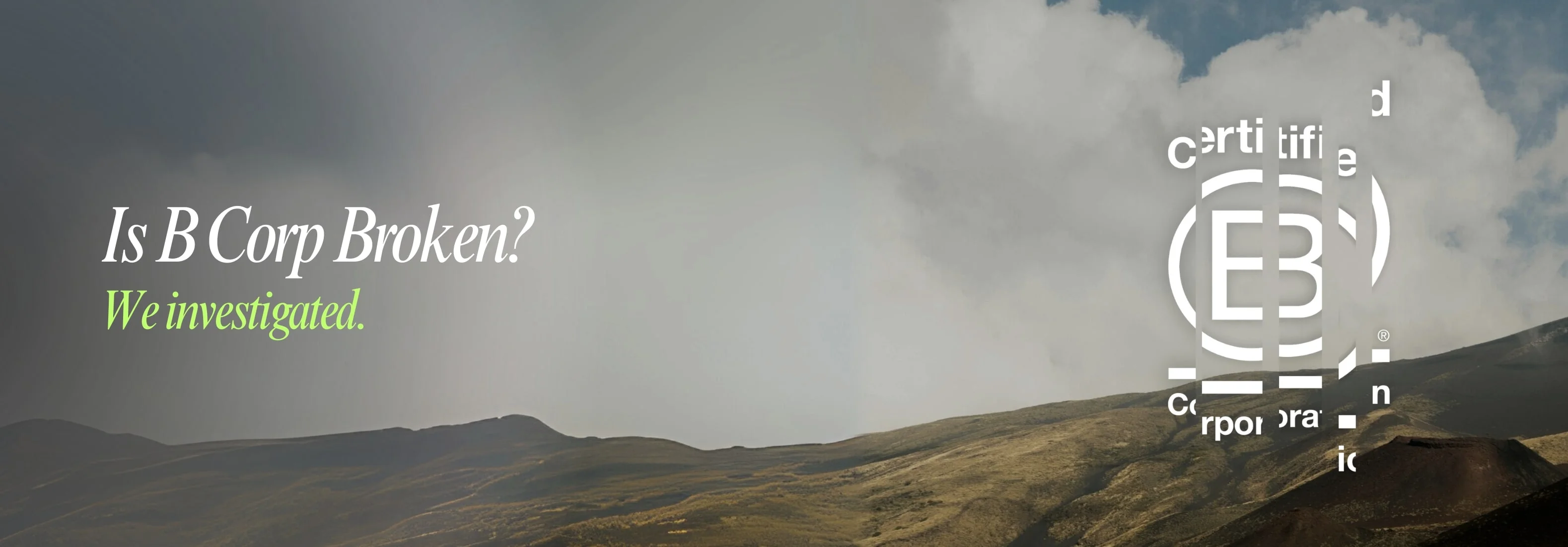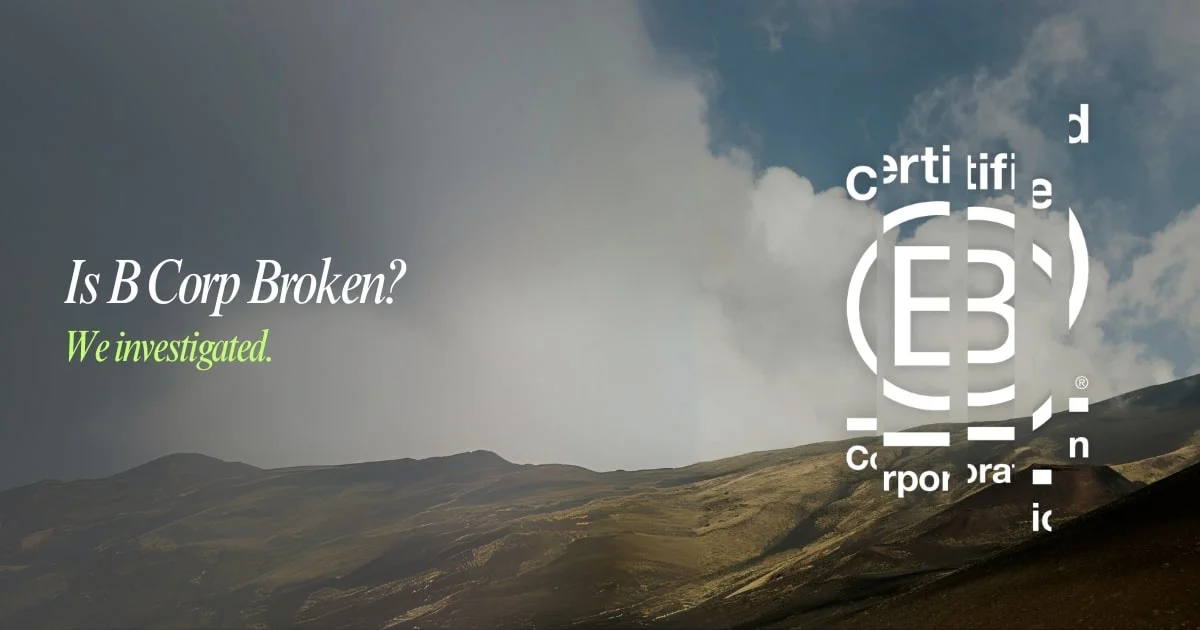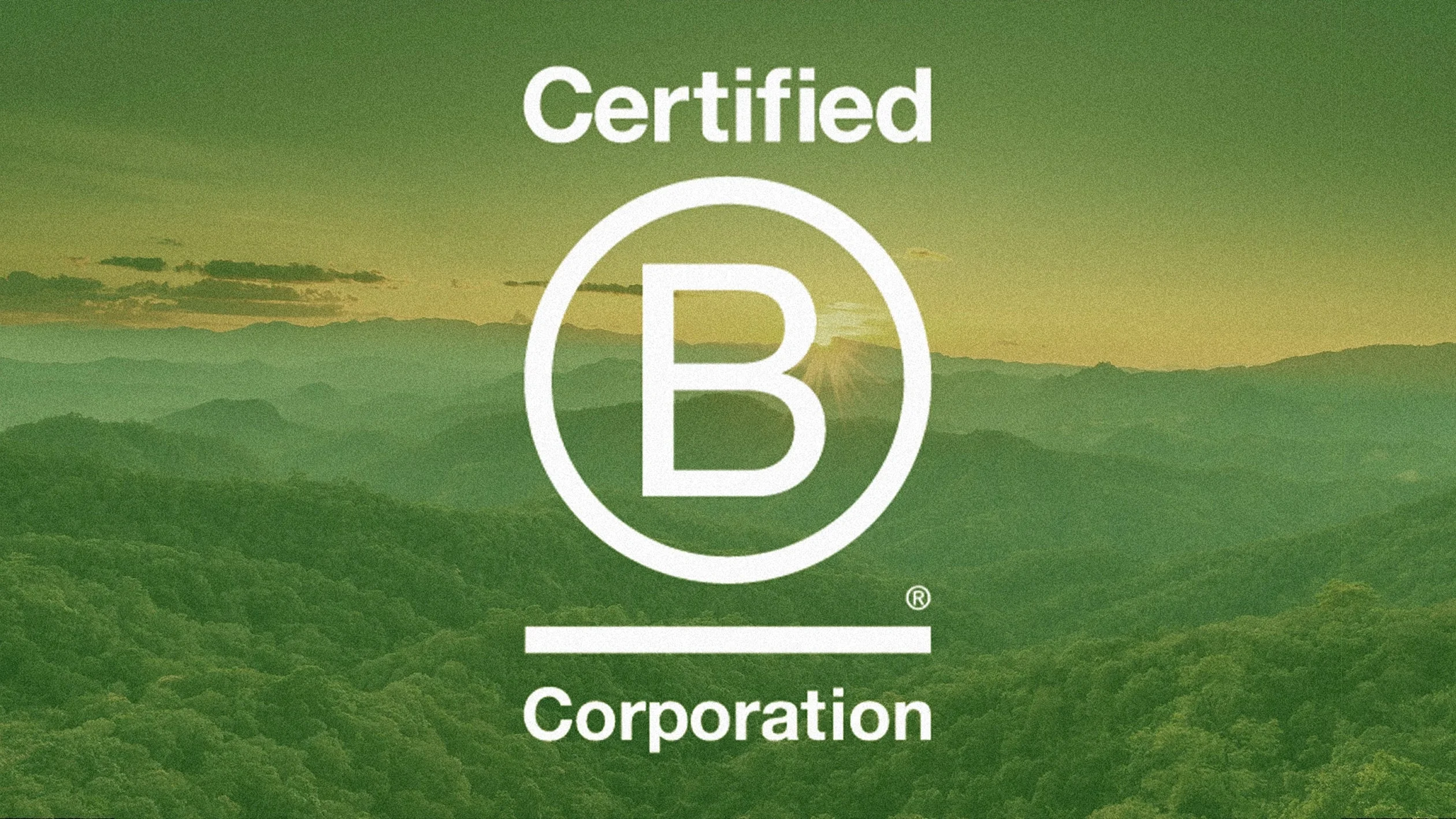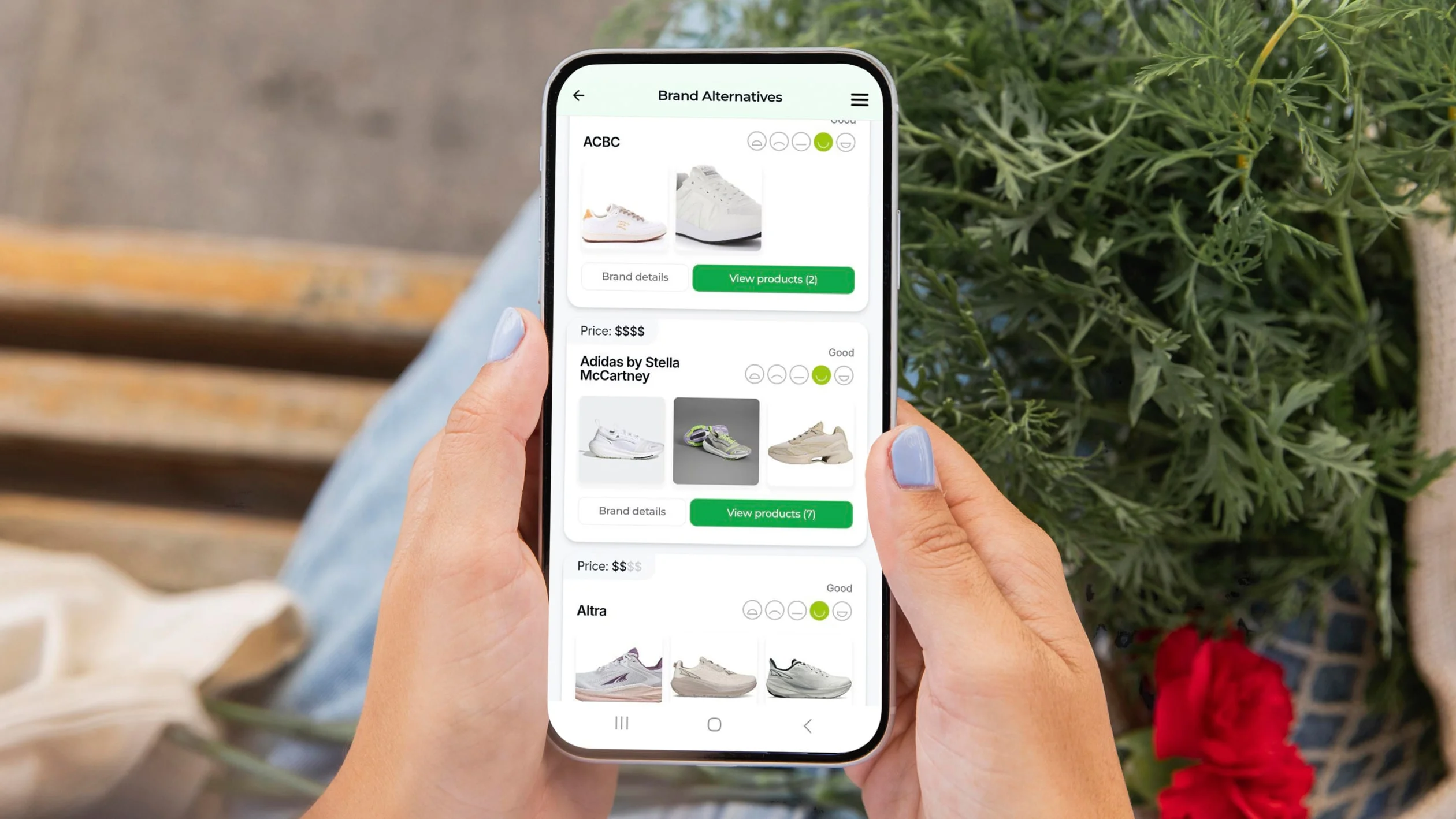

You see it. That little circle with a capital ‘B’ inside, sitting proudly on a brand’s website or product packaging. It feels good, right? Like a shortcut to making a better choice. You want to support a business that’s doing good in the world, and this B Corp logo seems to be the ultimate green light.
But hang on. Just pause for a second. What does that logo actually mean?
We get it. We’re Aloto, and we live and breathe this stuff. Not long ago, a comment on our social media pulled us up short. Someone pointed out that the explosion in B Corp certifications might not be the good news story it seems to be, suggesting the standards had been relaxed. That single comment sent us down a rabbit hole, and what we found was too important not to share.
So, let's dig in. Is the B Corp certification a genuine badge of trust for a responsible business, or has it become another piece of clever green PR? The answer, it turns out, is a bit of both.

Before we get into the drama, let's start with the basics. So, what is B Corp certification? In short, it’s a designation that a business is meeting high standards of verified performance, accountability, and transparency on factors from employee benefits and charitable giving to supply chain practices and input materials.
This isn't some award you can purchase. B Lab, a non-profit that launched the B Corp movement, handles the certification. Their goal? Build a community of companies working toward a new economic system — one where businesses balance profit with purpose. The vision: create a more inclusive, equitable, and regenerative economy. Getting B Corp certified means going through a detailed process that examines your entire business.
When you see that Certified B Corporation logo, the company has made a legal commitment to consider how decisions affect everyone — employees, customers, suppliers, communities, and the planet. This shifts away from the traditional profit-first approach. Companies actually modify their legal structure to protect their mission regardless of leadership changes. This combination of transparency and legal accountability gives B Corp status its credibility.
If the B Corp idea is so great, why the skepticism? The criticism that the standards were being relaxed wasn't pulled out of thin air. For years, the B Corp certification process was based on a points system. A company had to score at least 80 out of 200 on the B Impact Assessment to get certified.
Here’s the catch: the system was incredibly flexible. A business could rack up points for excellent employee benefits or community engagement while having some pretty significant gaps in its environmental performance or supply chain ethics. It allowed companies to essentially "offset" their weaknesses with their strengths. This created a loophole that, according to critics, allowed some companies with questionable practices to join the esteemed B Corp community.
When fast-fashion brands or large corporations with murky supply chains started flashing their B Corp certified badges, the alarm bells really started ringing. It felt like the B Corp movement, which was built on trust and systemic change, was being diluted from the within. The very thing designed to fight greenwashing was now being accused of enabling it. This criticism wasn't just noise; it was a legitimate challenge to the integrity of the entire corp certification.
Here's where the story takes a turn. B Lab listened. They heard the criticism from their own community of Certified B Corps and from conscious consumers. And instead of getting defensive, they initiated the most significant evolution of their standards in the movement's history.

Starting in 2025, the flexible points system is out. In its place are new, non-negotiable standards. It's no longer about hitting a vague score of 80. Now, every single company, regardless of its size or industry, must meet high standards across seven specific Impact Topics, plus foundational requirements that every B Corp must fulfill.
Let's get into what that actually means for a business:
This isn't just a small update; it's a complete overhaul. B Lab has made the tough but necessary choice to make its certification process much harder. By setting these non-negotiable rules across all seven areas, they're basically saying, "The bar is higher now." To be a modern B Corp, you have to prove you're doing the work across the board.
What's more, and this is crucial: this isn't a one-and-done deal anymore. Companies must demonstrate continuous improvement over time, with specific milestones at 3 years and 5 years. The "set-and-forget" approach to certification is officially dead.
The paradox of explosive growth and growing skepticism has been particularly visible in our corner of the world. The B Corp certification in Australia has seen phenomenal uptake.
This reflects a mature market where consumers are actively looking for brands they can trust. The demand for verified social and environmental performance is high. However, this rapid growth also put the old system's flaws under a microscope. As more companies in the region achieved B Corp status, discerning consumers began asking tougher questions. The evolution of the standards is therefore crucial for the continued credibility of the B Corp movement down under. It ensures that as the corp community grows, its meaning and value grow with it, solidifying the trust that Australian consumers place in the certification.
Okay, let’s be real for a second. The new standards are a massive improvement, and a B Corp logo earned after 2025 is going to mean a lot more. But here's the thing: no single logo can ever give you the full story.
Here's how to think about it: earning B Corp certification is like passing a tough final exam. It shows you're smart and committed. But it doesn't tell you if that student attends every class, completes assignments, or helps classmates. You need the full report card for that.
A brand's real sustainability commitment is like that report card. It's not about one test. It covers daily decisions: materials used, water consumption, and treatment of everyone in the supply chain. The certification provides a great clue, but not the complete story.
And that, right there, is why we built Aloto.
We know it’s exhausting trying to be a conscious consumer. You’re trying to decipher marketing jargon, investigate supply chains, and figure out which of the dozens of logos and certifications actually matter. It can feel like you need a degree in environmental science just to buy a t-shirt.

Aloto was designed to cut through that noise. We don’t just look at one certification. We give you a comprehensive, easy-to-understand rating for brands based on the world-leading methodology of Good On You. They analyze thousands of public data points, including certifications, audit reports, and brands' own reporting to assess their impact on three key areas: People, Planet, and Animals.
The B Corp certification is an important piece of data that feeds into that overall rating, but it’s just one piece. Good On You looks at everything, from a brand’s carbon footprint and water usage to its commitment to paying a living wage and its policies on animal welfare.
This is how you move from clues to confidence. You can see the B Corp logo and feel good that the brand has passed a rigorous test of its overall business model. Then, you can use Aloto to instantly see a detailed breakdown of its actual performance on the issues that matter most to you. Who knows, maybe you're about to meet your future favorite brand that is truly committed to being a business as a force for good.
So, where does that leave us? Honestly, you can feel good about spending your money with a Certified B Corporation, especially one that's playing by the new, tougher rules. That logo represents a commitment to doing things differently, and that's something worth celebrating.
But don't let the logo be the end of your curiosity. Think of it as a green flag — a sign you’re heading in the right direction, but also a nudge to look a little closer. And when you're ready to do that, you don't have to do it alone. With Aloto, you can see the full picture in seconds. We help you check the complete brand rating, discover amazing companies that are genuinely doing good work, and build a wardrobe that you feel truly great about wearing.
Really, changing the world through spending isn't about finding one perfect solution. It's about asking better questions and having tools that help you discover your own answers.